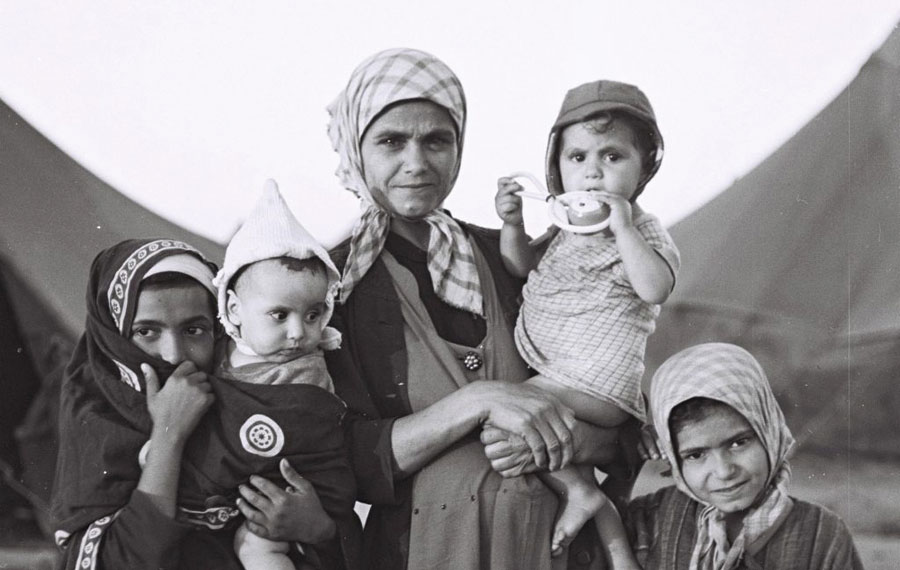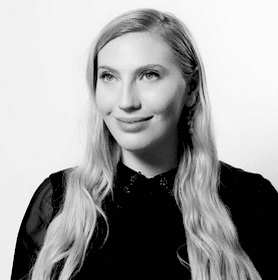 A Jewish Yemenite family in transit to Israel in 1949. Photo from the National Photo Collection of Israel
A Jewish Yemenite family in transit to Israel in 1949. Photo from the National Photo Collection of Israel “Let me say this as plainly as possible: Jews are not an indigenous people,” tweeted Assistant Rabbi Andy Kahn of New York City’s Temple Emanu-El on July 7. “It is appropriative to make use of this word when referring to our relationship to the land of Israel, and it undermines the difficult work being done to fix the ongoing oppression of indigenous peoples.”
Let me say this as plainly as possible: Jews are not an indigenous people. It is appropriative to make use of this word when referring to our relationship to the land of Israel, and it undermines the difficult work being done to fix the ongoing oppression of indigenous peoples 1/
— Rabbi Andy Kahn (@rabbiandykahn) July 7, 2020
The tweet quickly went viral, surpassing 10 thousand likes. In the expanded thread, Kahn went on to argue that “Jews, as a people, have not been part” of the indigenous rights struggle because they have not been included in the work by the United Nations for Indigenous Peoples “over the past 20+ years.”
The statement drew criticism from numerous Jewish voices, including Rabbi Joshua M. Davidson, the Senior Rabbi at Kahn’s synagogue.
“I disagree with Rabbi Kahn’s statement in both its facts and its effects, nor does it speak for Temple Emanu-El,” Davidson wrote in a letter to The Forward. “Beyond the Bible, numerous historians argue the Jewish people’s national identity was forged in the land of Israel.”
The senior rabbi also noted that Kahn’s tweets can be harmful and easily exploited.
“Whatever point Rabbi Kahn sought to make, and whether Jews meet the United Nations measure of an indigenous people or not, such claims are too easily manipulated by those who seek to undermine Israel’s legitimacy as a Jewish homeland,” Davidson wrote.
He then went on to argue that Jews are indigenous to the land of Israel.
“Archeology suggests an ancient Jewish presence there 3,000 years ago corresponding to the period of the Davidic monarchy,” Davidson said.
One group who took major issue with Kahn’s comments were Jews of color.
“You do realize that over half of Israeli Jews never left the Middle East — ever. So, how are we appropriating the suffering of others? Sorry if our indigeneity, oppressions, and culture are inconvenient truth to your political agenda,” Jews Indigenous to the North East and North Africa (JIMENA) tweeted in response to Kahn.
Siamak Kordestani, who is on the young professionals board of JIMENA, penned an open letter to Kahn.
“The fact you a) blocked a large number of Jews including Jews indigenous to the Middle East and North Africa and b) failed to note that these communities have been living in the Middle East for well over 2,000 years deeply concerns me,” Kordestani wrote. “Can you see how this is extremely offensive and even prejudiced against non-European Jews?”
This morning, @rabbiandykahn of @EmanuEl_NYC blocked many Jews on Twitter including me even though I have never interacted with him.
Why is he trying to erase Jews Indigenous to the Middle East and North Africa?
Please read and share my open letter: pic.twitter.com/kwhCkM9JKV
— Siamak Kordestani (@SiaKordestani) July 8, 2020
JIMENA also weighed in on Kahn’s twitter antics. “Him blocking a number of prominent and outspoken Middle Eastern Jews, before proclaiming Jews aren’t indigenous to Israel, is in fact an attempt to suppress Middle Eastern voices and experiences,” the organization tweeted. “He can only grasp the most facile understanding of the Middle East — one that easily fits into his privileged worldview. Our *PLACE in MENA disrupts his narrative so much that the only thing he felt he could do is erase us – individually and collectively. This reeks of racism.”
Prominent Mizrahi activist Hen Mazzig agrees that Kahn’s behavior was insensitive to Jews from the Middle East and North Africa. “Rabbi Kahn has a blind spot for Mizrahi Jews,” Mazzig told The Journal. “He has displayed it over and over again by silencing Mizrahi Jews and even actively attacking them.”
Davidson addressed these concerns in his letter, noting, “Mizrahi communities today bear living witness to a Jewish link to the land — for some, a sustained presence there; for more, one interrupted by conquest and exile.”
“I’m glad that Rabbi Davidson addressed Rabbi Kahn’s tweets and mentioned Mizrahi heritage,” Mazzig continued. “However, I am concerned that Temple Emanu-El, whose entire clergy is homogenous, has allowed Rabbi Kahn to consistently bully, harass and erase the experiences of Jews of color with little pushback. It speaks to how much they care about people of color in these times.”
In a statement to the Journal, Kordestani said, “I commend Temple Emanu-El Senior Rabbi Joshua Davidson for speaking the truth about Mizrahi Jewish communities: we bear living witness to the deep Jewish connection to the land from ancient times until today.”
Kahn and Davidson did not respond to the Journal’s requests to comment.























 More news and opinions than at a Shabbat dinner, right in your inbox.
More news and opinions than at a Shabbat dinner, right in your inbox.